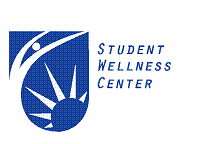Tuesday, October 27, 2009
5 Healthy Eating Tips from our Cafeteria
1. Steer clear of the fried side. Don't even bother wandering over to the left hand side of cafeteria hot line: the offering consist almost entirely of fried fast food-style options, all high in fat and sodium and low on nutrients.
2. Make your own salad from the salad bar. Heap your plate with vegetables and beans, go easy on the cheese, and try using half the normal amount of dressing you usually use. Craving some meat? Ask for a sliced grilled chicken breast from the sandwich station next to it.
3. Try the daily special with two vegetables. No, your Mom didn't make it, but someone actually cooked these meals. Ask for two vegetable sides instead of a starchy potato, pasta, noodle, or rice side and you've made a much better choice. Or, go for the broth, nt
4. When building a sandwich, skip the mayo and cheese. Yes, mayonnaise is delicious, but it also can double the total fat and calorie count of your sandwich. Go for mustard instead, and ask for whole grain breads.
5. When all else fails, eat cereal with skim milk. No, not the fruit loops or frosted corn flakes. The cafeteria now offers whole grain, low sugar options that will help you feel full and avoid sugar crashes later in the day. Add a banana to that choice for even more nutritional impact.
Check out this website for more ideas on how you can make simple, healthier swaps in your food choices
Tuesday, October 20, 2009
More immunization information
New York City Department of Health operates free immunization clinics in all five boroughs and provides child immunizations required for school attendance (PDF).
They also provide other vaccines for adults, including: Hepatitis B, Td, Tdap, MMR, and pneumococcal vaccines.
Influenza vaccine (seasonal only) is available through June 30th, 2010. HPV vaccine is available to girls and women 9 through 26 years of age and meningococcal vaccine for 11 through 18 year olds. Hepatitis A vaccine is available for high-risk adults.
2009 Winter/Spring Schedule, locations, and directions
For additional information about clinic services, and to confirm the days and hours of operation, please call 311.
Tuesday, October 13, 2009
H1N1 Vaccine Information

The H1N1 Flu Vaccine: What You Should Know
As a part of New York City College of Technology’s on-going effort to keep you informed with the latest information regarding H1N1, we have provided below new information from the Center of Disease Control and Prevention (CDC) and the New York City Department of Health (DOH) regarding the H1N1 flu vaccine.
The H1N1 flu vaccine is a separate vaccine from the seasonal flu vaccine and is available in two different forms: the “flu shot” and the nasal mist. Both forms of vaccine are effective in preventing H1N1, but the nasal mist is approved for healthy people ages 2 to 49 that are not pregnant. The flu shot is approved for use in people 6 months of age and older, including healthy people, people with chronic medical conditions and pregnant women. Speak with your healthcare provider to determine which vaccine is best for you.
According to the CDC, the U.S. government has purchased over 250 million doses of H1N1 vaccine, so everyone who wishes to receive a dose will have an opportunity to do so. Initially, however, until enough vaccine has been manufactured and distributed, vaccination efforts will focus first on people in five target groups who are at higher risk for 2009 H1N1 influenza or related complications, are likely to come in contact with influenza viruses as part of their occupation and could transmit influenza viruses to others in medical care settings, or are close contacts of infants younger than 6 months (who are too young to be vaccinated). The five target groups are:
· pregnant women,
· people who live with or provide care for infants younger than 6 months (e.g., parents, siblings, and day care providers),
· health care and emergency medical services personnel,
· people 6 months through 24 years of age, and,
· people 25 years through 64 years of age who have certain medical conditions that put them at higher risk for influenza-related complications.
After demand in these high risk groups has been met, vaccinations will proceed with everyone ages 25-64, and then those who are 65 years or older.
You may learn more information about the H1N1 vaccine at the following websites:
http://cdc.gov/h1n1flu/vaccination/vaccine_keyfacts.htm
Where to get vaccinated for H1N1:
For additional information or to find out where you can get either the seasonal flu shot or H1N1 flu shot, call the toll-free NYC Department of Health's Flu Vaccination Information Line at 311. You may also search for flu clinic convenient to you and find more information on H1N1 in New York City on the flu website.
For more information on preventing the flu, check out this podcast from the CDC.
The Student Wellness Center is available to answer questions about H1N1and any other health-related matters. The Center can be reached at (718) 260-5910 and is located in Pearl 104. We will post more information as it becomes available.
Please continue to check the City Tech website for updated information.

